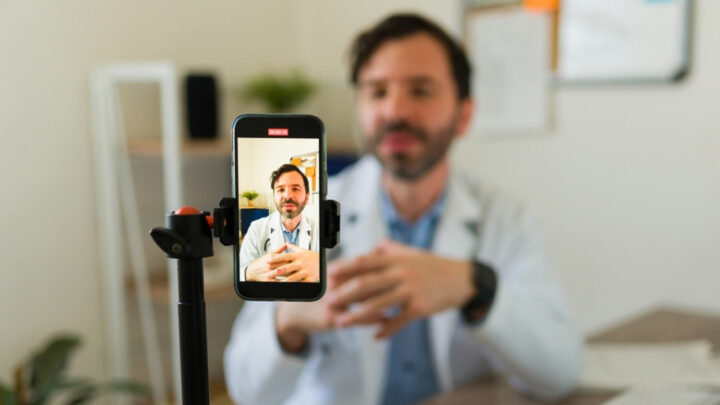
A controversial study recently came out, detailing the facts surrounding researchers who constructed an infectious horse pox virus vaccine from chemically synthesized DNA fragments. The study raised flags of alarm, as fellow researchers grew concerned that terrorists could hypothetically exploit this research as a recipe for smallpox and use it as a biological weapon. The debate continued, with some saying that the potential improvements this research could impel in vaccine development outweighs the risk of biological weapon development. However, others argue that because the global vaccination for smallpox ended in the 1980s, society has absolutely no immunity to the virus and are left completely vulnerable.
In light of this debate, we asked doctors, “Do the potential risks of synthesizing viruses (such as use in biological weapons) outweigh the potential benefits (such as vaccine development)?”
Out of the 2514 doctors who responded from 48 countries, 52 percent said ‘yes, the benefits do outweigh any potential risks’:
“Military research is going to happen… We need to hope there will also be benefits. It may already be too late to avoid the risks.” – Hematology Oncology
“Synthesizing a virus in a tightly controlled environment can help develop its remedy.” – General Practice
“I think the benefits outweigh the risks. I think terrorists will find a way to kill if that is their intention. I don’t think the threat should delay scientific study.” – Family Medicine
“As a doctor, I am FULLY against arms, but we cannot stop scientific advances because of their risk of being used inappropriately.” – General Surgery
“The benefits of vaccination are very clear if we make a retrospective assessment. I do not believe that the potential use as biological weapons should obscure scientific evolution.” – General Practice
“Biological weapons are in themselves more dangerous than any other weapon, even a minimum error can exterminate even their creators. However scientific research is not the culprit, all the technology that has been created for the good of humanity has also had war applications, that is in human nature.” – Obstetrics & Gynecology
“The objectives of creating new vaccines from genetically manipulated viruses must be thoroughly analyzed. I think there must be an impartial authority to regulate these processes, since there will always be people with destructive ideas who will want to create weapons to destroy humanity.” – General Practice
However, 48 percent of doctors responded ‘no, the benefits do not outweigh the risks,’ with many arguing that biological weapons are the most destructive weapon of mass destruction in existence:
“This is where our intelligence will be tested. We may be smart enough to synthesize a virus but are we smart enough to see the insanity of doing so?” – Family Medicine
“The biological weapon is the most lethal weapon of any military weapon, which has been used in an unscrupulous manner by a terrorist to destroy populations or cities.” – General Practice
“Biological weapons are the worst thing that our humanity has invented as it destroys over time and attacks the two civilian and military commands in conclusion it does not differentiate from its enemy.” – Neurosurgery
“Manipulating a virus can produce a Pandemic worse than any of the pathogenic viruses that currently exist.” – Pediatrics
“Biological weapons can end humanity …” – General Practice
The poll was fielded in March of 2017. 2,514 physicians responded to the poll. The margin of error for the global poll was ±2%. More information about Sermo polling methodology can be found here.
Are you a physician? Log into Sermo to weigh-in on conversations with other doctors from around the world.








